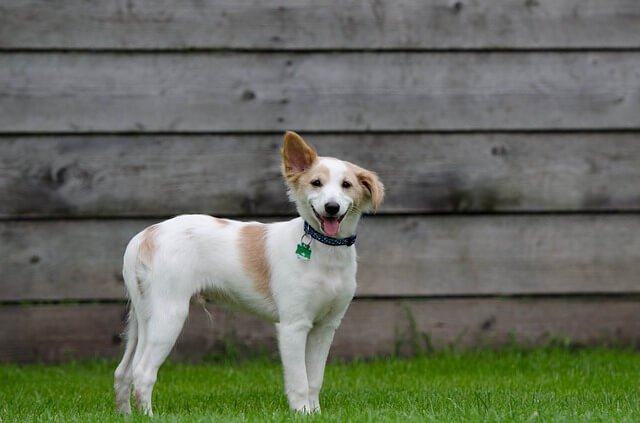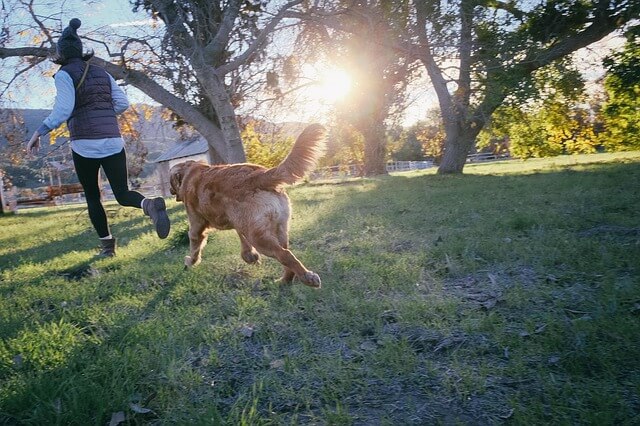Cancer Sniffing Dogs Join the UC Davis Cancer Center
We just got word that the UC Davis Comprehensive Cancer Center has added some valuable new members to their team. What’s more, we’ve heard that these young upstarts can sit and speak on command…

*Spoiler alert* They’re puppies!
These new additions to the cancer fighting team at UC Davis are Charlie, a German Shepherd, and Alfie, a labradoodle. These four-month old dogs are going to complete a rigorous 1 year program that will teach them how to detect cancers in the head and neck using their acutely sensitive noses.
Research suggests that the average dog’s sense of smell is anywhere from 10,000 to 100,000 times stronger than the average human’s. It is so powerful– studies have shown that dogs can be taught to detect cancer cells in saliva, urine and even breath samples.
Did you know that dogs have already provided early detection for patients with lung, breast and thyroid cancers?
A New Weapon in the Fight Against Cancer
“Our new canine colleagues represent a unique weapon in the battle against cancer. It’s the first of its kind at UC Davis, and the dogs’ incredible talent for scent detection could offer us humans a real jump on diagnosing cancer much earlier and thus save many more lives,” explained Peter Belafsky, a physician and Charlie’s partner at UC Davis.
The chair of UC Davis Department of Otolaryngology, Dr. Hilary Brodie, says they plan to explore new avenues in using this canine team to diagnose cancers in the head and neck. Brodie will act as Alfie’s handler during this year-long program. It’s possible this research could produce some significant breakthroughs.
“The more important aspect will being able to go beyond the proof of concept that they can detect cancer, which we know they can, to find out what it is they are actually detecting and then we can develop technologies to further assist in that process,” says Brodie.
Who Will Train These Cancer-Sniffing Dogs?
Alfie and Charlie are going to be trained by Dina Zaphiris. Not only has this UC Davis alum been professionally training dogs for a quarter century, but she may be the most qualified person to teach these dogs how to sniff out cancer. She created the InSitu Foundation, which has successfully trained 30 cancer-detection dogs over the last 15 years.

Zaphiris’ training regimen is pretty intense for these dogs.
This may not sound like an impressive number, but it takes a special type of dog to be able to successfully identify cancers at an early stage. Zaphiris herself handpicked Alfie and Charlie for this program when they were just a few weeks old. The animal must possess high levels of focus and drive in order to complete the training.
“Training is basically a way of life. Like any athlete, like an Olympic athletic, like a search dog, a bomb detection dog, a narcotics detection dog – these are dogs that live to work, and they work to live,” says Zaphiris. “Meaning, they associate their work with reward, with eating, with playing. So when you say work, the first thing to understand is that work equals play for these dogs.”
Over the course of the next year, Alfie and Charlie will spend four to six hours each day training with Zaphiris. At eight months, Zaphiris will teach them how to differentiate between healthy cells and cancer cells– a very crucial step.
“A finished dog would … [be] able to pick out the cancer sample among healthy controls,” explains Zaphiris.
Conclusion
Early detection is so important when it comes to a disease like cancer. Unfortunately, some like pancreatic cancer or lung cancer often go by unnoticed until they reached later stages. Many medical specialists have devoted their careers to researching better ways to diagnose these diseases. Cancer sniffing dogs may sound odd at first, but it’s proven to be a very promising avenue for early detection.